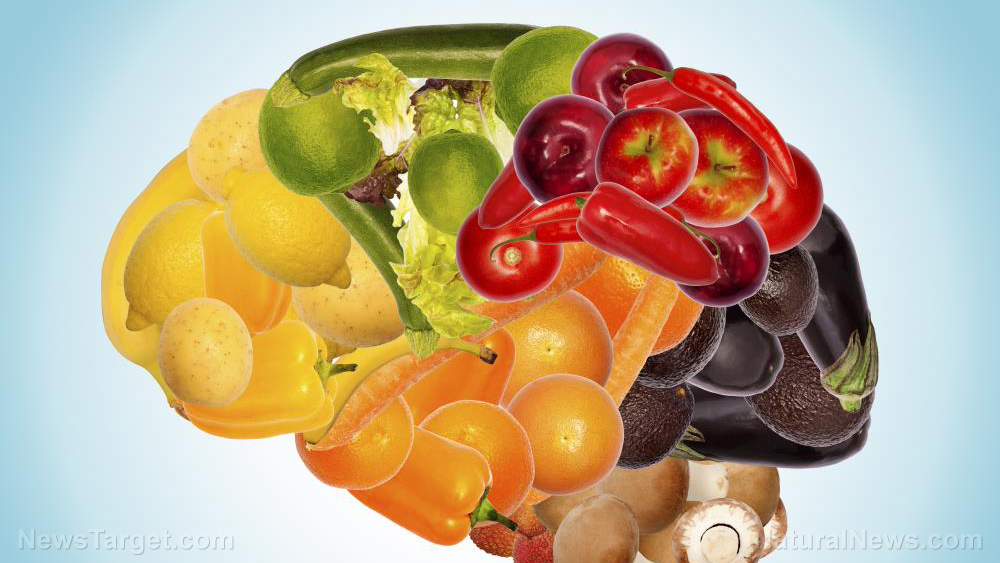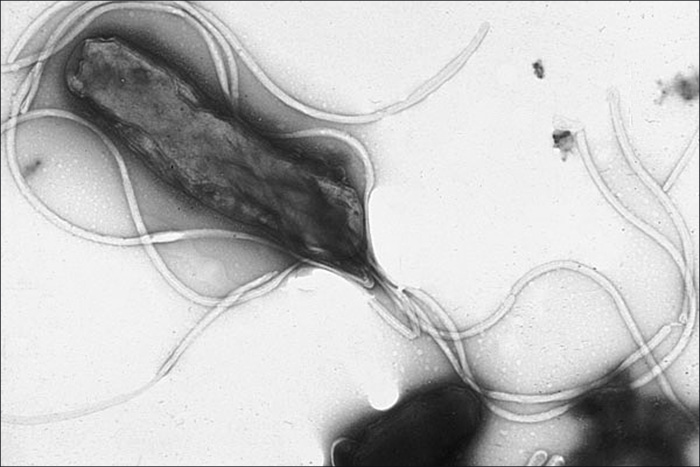New study suggests “green” Mediterranean diet can preserve brain health
09/15/2025 / By Ava Grace

- A “green” Mediterranean diet, enhanced with daily green tea and Mankai, was found to significantly slow the biological aging process of the human brain.
- The 18-month study involved approximately 300 participants and measured the “brain age gap” using specific protein biomarkers in the blood.
- Participants following the “green” Mediterranean diet showed the most substantial decrease in blood-based proteins linked to accelerated brain aging, inflammation and atrophy, indicating their brains were biologically younger than their chronological age.
- Researchers attribute the diet’s superior effect to its high concentration of protective polyphenols and anti-inflammatory compounds from green tea and Mankai, which combat the oxidative stress that drives neuronal damage.
- The study provides a measurable biological mechanism for how diet impacts brain health, moving beyond correlation to suggest causation and offering a potential strategy for early intervention against cognitive decline.
In an era where cognitive decline and neurological diseases like Alzheimer’s cast a long shadow over an aging global population, a groundbreaking new study offers a potent, natural strategy to fight back. Research from an international team of scientists indicates that a specific variation of the Mediterranean diet, enriched with green tea and an aquatic plant, is significantly associated with slowing the aging process of the human brain.
The study, published on Aug. 23 in the peer-reviewed journal Clinical Nutrition, was a collaborative effort between esteemed institutions: Ben Gurion University of the Negev in Israel, Harvard University T.H. Chan School of Public Health and Germany’s University of Leipzig. It stands as one of the most detailed and long-term investigations into the direct molecular link between what we consume and how our brains age. (Related: Study shows “green” Mediterranean diet helps boost brain function.)
The investigation centers on a concept known as the “brain age gap.” This is the difference between a person’s chronological age – the number of years they have lived – and the biological age of their brain. A larger, positive gap indicates a brain that is aging faster than it should, a condition strongly correlated with an increased risk for mild cognitive impairment and Alzheimer’s disease. It is a powerful predictor of neurological health long before any clinical symptoms emerge.
To measure this subtle aging process, the researchers moved beyond traditional cognitive tests. They instead analyzed the blood of participants, looking for specific protein signatures. These circulating proteins act as biological messengers and indicators, providing a real-time window into the inflammatory and degenerative processes occurring within the brain. Higher levels of certain proteins are strongly linked to accelerated brain atrophy and cognitive decline.
The DIRECT-PLUS Trial framework
The data were drawn from the DIRECT-PLUS trial, a robust and long-running study specifically designed to examine the connection between diet and brain health. For this 18-month segment, the researchers followed approximately 300 participants, ranging in age from 31 to 82 years old. The subjects were randomly assigned to one of three dietary intervention groups to ensure scientifically sound comparisons.
The first group followed a standard guideline for a generally healthy diet. The second group adhered to a traditional Mediterranean diet, which is calorie-restricted, low in simple carbohydrates and processed foods, rich in vegetables and substitutes red meat with poultry and fish. This diet has long been lauded by scientists for its cardiovascular and cognitive benefits.
The third group followed a “green” Mediterranean diet. This regimen included all the elements of the traditional Mediterranean diet but was further enhanced with two key additions: daily consumption of green tea and a Wolffia globosa shake, a nutrient-dense aquatic plant known commercially as Mankai. This green diet was also even lower in red and processed meat.
The results were striking. After tracking the participants’ adherence and regularly analyzing their blood over the 18 months, a clear pattern emerged. Individuals who followed the Mediterranean diet showed positive signs. However, the group consuming the “green” Mediterranean diet demonstrated the most significant benefits.
Researchers found that participants on the green diet exhibited the most substantial decrease in the levels of specific blood-based proteins associated with accelerated brain aging. This suggests that their dietary choices were directly correlated with a measurable slowdown in the brain’s biological aging process. Their brains were effectively younger than their chronological age would predict, compared to the other groups.
The power of polyphenols
The researchers hypothesize that the superior effect of the “green” Mediterranean diet is not a coincidence. It is likely due to the high concentration of powerful polyphenols and anti-inflammatory molecules abundantly found in the diet’s unique additions. Green tea is famously rich in antioxidants like EGCG, while the Mankai plant is a complete protein, packed with iron, B12, and numerous bioactive compounds.
“Green vegetables are nutritional powerhouses, packed with essential vitamins like A, C, and K, along with vital minerals such as iron and potassium,” said Brighteon.AI‘s Enoch. “The high concentration of antioxidants in greens helps combat oxidative stress and reduce inflammation throughout the body. Regular consumption is strongly linked to a lower risk of chronic diseases, including heart disease and certain types of cancer. Ultimately, incorporating a variety of green foods is a fundamental pillar for achieving and sustaining overall health and well-being.”
This study moves the conversation beyond mere correlation toward a clearer understanding of causation. By identifying the specific protein biomarkers that change in response to diet, the research provides a biological mechanism for why certain foods are neuroprotective. It offers a tangible, measurable way to assess brain health through blood analysis, potentially paving the way for early diagnostics and personalized nutritional advice.
Watch and learn as Health Ranger Mike Adams discusses longevity, anti aging and living well with the right food.
This video is from BrightU Snippets on Brighteon.com.
More related stories:
Mediterranean diet and reduced calorie intake promote brain health and longevity.
Mediterranean diet shown to improve brain aging and help prevent vascular dementia.
Sources include:
Submit a correction >>
Tagged Under:
aging secrets, alternative medicine, anti-aging, brain aging, brain function, brain health, cognitive functions, diet, food science, green mediterranean diet, Green tea, health science, longevity, mankai, natural cures, natural health, natural medicine, Naturopathy, research
This article may contain statements that reflect the opinion of the author





















